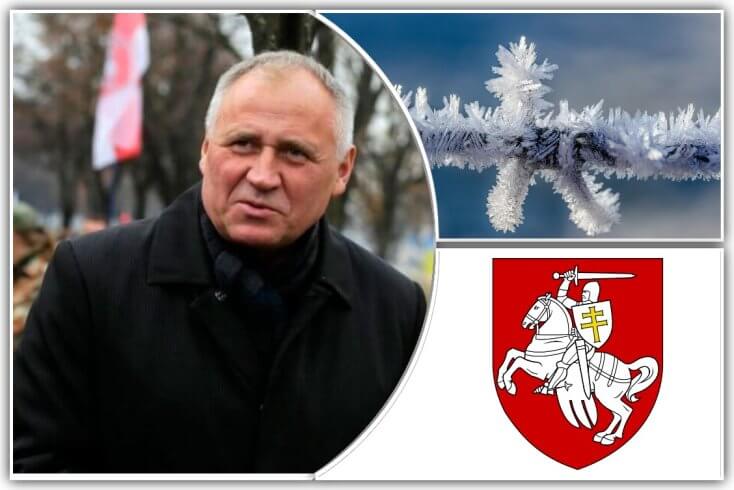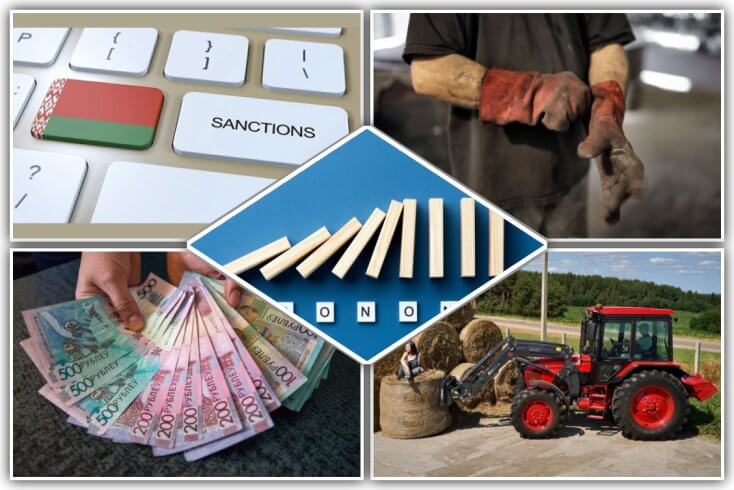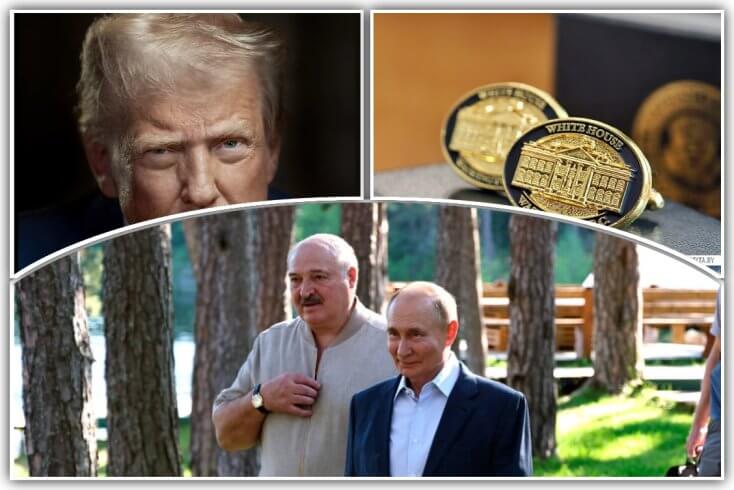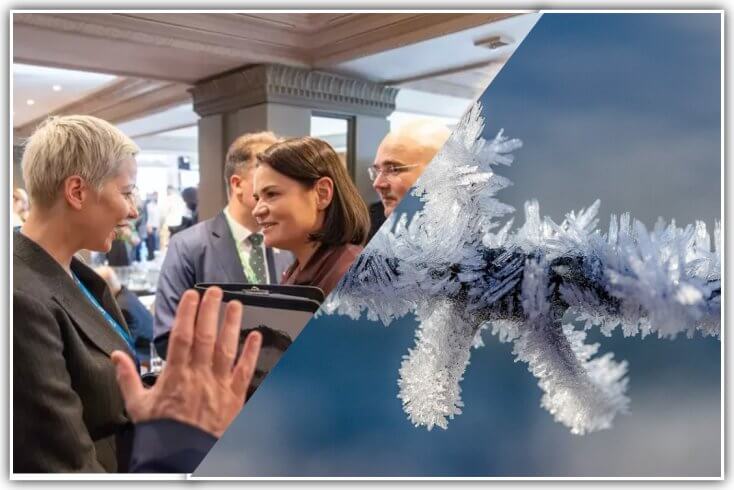The iron curtain already divides the West and East and is probably there for long, said Lithuanian President Gitanas Nauseda, commenting on his government’s plan to close two more crossings at the border with Belarus. His statement came after the Belarusian opposition leader warned Lithuania against restricting human contacts for ordinary people.
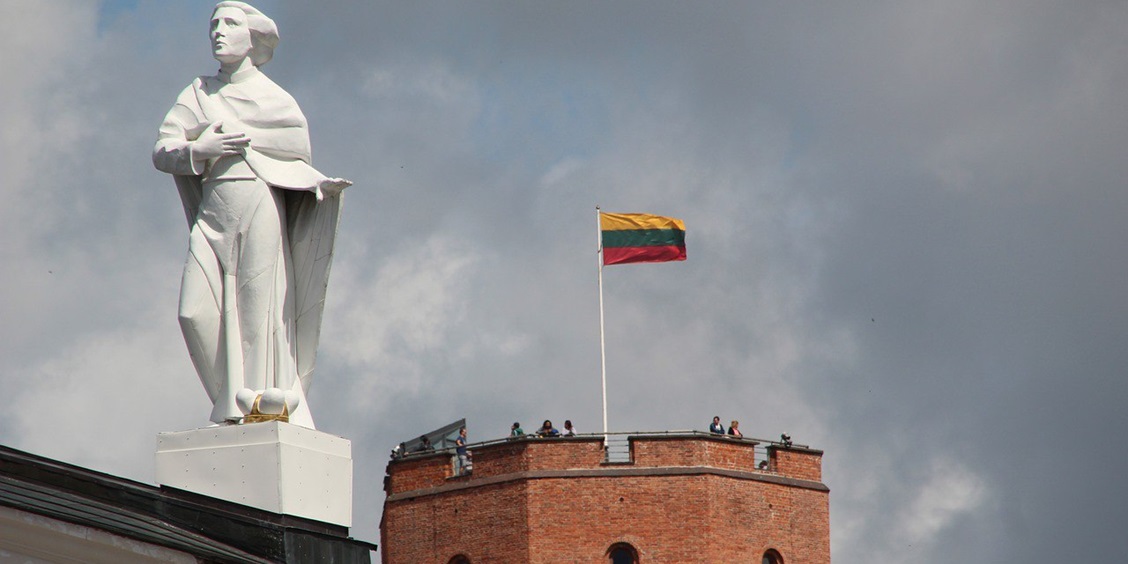
Lithuanian Interior Minister Agne Bilotaitė said on February 6 that closing Lavoriškės and Raigardas would help Lithuania better comply with international sanctions and fight smuggling. She also suggested limiting bus passenger traffic to reduce threats to Lithuania’s national security.
Last year, Lithuania closed Šumskas and Tverečius, two of the six border crossings with Belarus. If it closes two more on March 1, it will be even more difficult for Belarusians, who already spend hours waiting in line at the border, to travel to Lithuania.
Hardliners’ voices grow louder
The number of Belarusian nationals in Lithuania has tripled in three years to more than 60,000 on September 1. Understandably, the voices of politicians, officials and law enforcers who see the influx as a threat to national security are growing stronger. One of their main arguments is that it gives Alaksandar Łukašenka’s secret services ample opportunity to operate in Lithuania.
President Nauseda supports the hard line. Last year, he tried to have the Seimas adopt equal restrictions for Belarusians and Russians, but the parliament overrode his veto. Belarusians are subject to restrictions, but to a lesser extent than Russians.
In November, Interior Minister Bilotaitė also spoke in favor of tighter restrictive measures for Russian and Belarusian nationals.
Last year, Lithuanian politicians raised the issue of “Litvinism,” accusing Belarusians of staking out claims as heirs of the Grand Duchy of Lithuania.
Śviatłana Cichanoŭskaja, the Vilnius-based leader of the Belarusian opposition, dismissed those concerns as an attempt to pit Lithuanians against Belarusians. The Lithuanian State Security Department, after studying the matter, concluded that Litvinism did not pose any tangible threat to Lithuania.
Not all Lithuanian politicians support the hard line. For example, Seimas Speaker Victoria Chmilite-Nielsen has repeatedly spoken out against harmonizing sanctions against Russians and Belarusians.
Vilnius wary of Łukašenka’s agents
The Lithuanian government has attempted to restrict the entry of Belarusians who support the Russian invasion of Ukraine or have links to Belarus’ security services. In November, the Department of Migration reported that it had rejected 1,644 applications for visas and residence permits from Belarusian nationals within a year because they were considered a threat.
Last week, it revoked the residence permit from a former Belarusian policeman suspected of involvement in reprisals.
Commenting on the incident, Paulius Saudargas, a deputy speaker of the Seimas, said that the uncontrolled entry of Belarusians could be a threat. “Belarus is ruled by a dictator. It is a state riddled with secret services, and there is a lot of capacity there to expand the network of Belarusian agents in Lithuania,” he said.
In early January, Frederikas Jansonas, an aide to the president, expressed concern that by accepting large numbers of Belarusians “we may be establishing a fifth column.”
In general, the Lithuanians have become more vigilant. They seem determined to limit cross-border traffic, and those Belarusians who have already settled down in Lithuania may find it more difficult to overcome bureaucratic hurdles to legalization.
For many Belarusian nationals who participated in anti-government protests in 2020 returning home would mean going to prison for a long time.
Cichanoŭskaja agrees that some of those who come to Lithuania may be regime accomplices and offers help in identifying them. In fact, it was a Belarusian resistance group that denounced the former Belarusian policeman to the Lithuanian migration office.
Too early to give up on Belarus
Belarusians find themselves between a hammer and an anvil. For some, a Lithuanian visa is a chance to escape from the dictatorship at least for a while; for others, Lithuania has become a place of forced political emigration or an opportunity to earn a decent living.
Vilnius has always supported Belarusian pro-democracy forces and continues to do so. It hosts the office of Cichanoŭskaja, as well as other opposition groups and media outlets labeled extremist by Minsk.
After 2020, many Belarusian IT professionals moved to Lithuania, and their companies are major tax payers.
Belarusian truck drivers and construction workers work in Lithuania finding wages there more attractive, so Lithuania clearly benefits from the influx of Belarusian labor and brain power.
Lithuanians have justified concerns about Russian expansion. Some Lithuanian politicians, including President Nauseda, believe that Belarus is already a part of Russia.
Last July, before a NATO summit in Vilnius, he said that Belarus had been “swallowed” by the empire, and was therefore an additional regional security issue.
Now, he explains the intention to close two more border crossings primarily by the Russian threat, recalling “the atrocities committed by Russia in Bucha.”
Some Belarusian opposition politicians also claim that their country is occupied by Russia. Based on that view, Western politicians may conclude that Belarus no longer exists, and so there is no point in fighting for it.
It is true that after 2020 Minsk’s dependence on the Kremlin has increased. Still, the Belarusian ruler has a great deal of independence, at least in domestic policy. Most importantly, according to polls, millions of Belarusians do not want their country to be part of Russia.
The full merger is unpopular even among Łukašenka stalwarts. Moreover, a significant part of Belarusians wants to live in a free democratic country, and these people keep fighting.
Regime to blame, but opponents bear costs
Obviously, Łukašenka is responsible for the tension with Vilnius. He ordered the forced landing of an airliner bound for the Lithuanian capital, orchestrated the migration crisis at Lithuania’s border, became an accomplice in the Russian war against Ukraine, asked Moscow to deploy nuclear weapons in Belarus, and threatened to unleash Wagner mercenaries against western neighbors.
Understandably, all these threats worry Lithuanians. Ordinary citizens think about their safety first. According to a survey conducted by Baltijos Tyrimai last fall, six in ten Lithuanians said that the entry regulations should be tightened for Belarusians.
This year, Lithuanians will go to the polls to elect a president and members of the Seimas and the European Parliament. Some politicians may play up external threats, including those from Belarus, during their election campaigns.
Opponents of the Łukašenka regime are likely to be the first to suffer from the restrictions.
Belarusian pro-democracy forces are doing their best to dispel what they see as Vilnius’ exaggerated fears. Cichanoŭskaja noted, “We understand the concerns of the Lithuanian security services, but closing the border crossings for passengers means treating the symptoms, not addressing the causes of the problem . . . It is Łukašenka and his regime that should be isolated, not the Belarusians.”
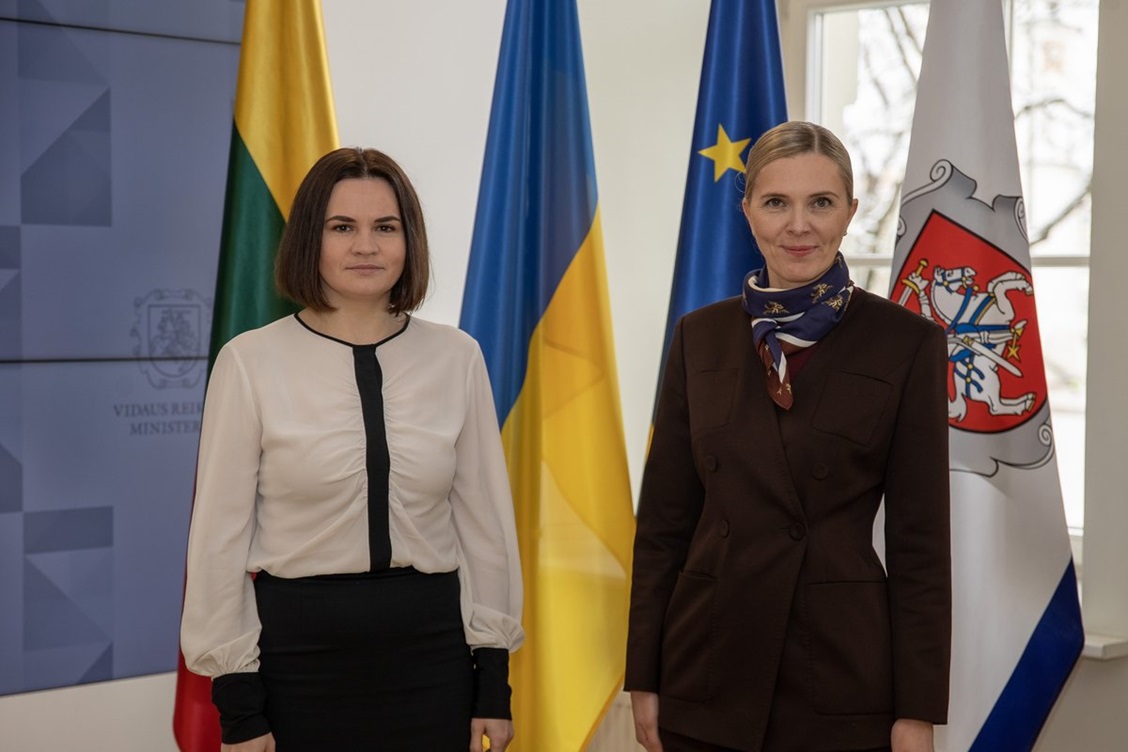
Valer Kavaleŭski, deputy head of the United Transitional Cabinet, says that the iron curtain is inconsistent with the European Union’s desire to see Belarus as part of a peaceful Europe.
It seems easier to erect a solid wall, but would that be a far-sighted approach? The Łukašenka regime is not eternal, but Belarusians and Lithuanians are destined to live side by side forever.
